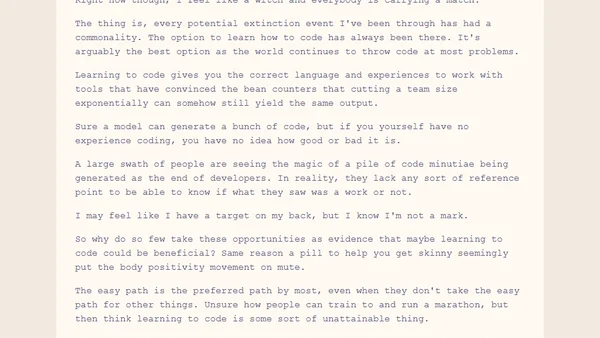
You could just learn to code
A software engineer argues that learning to code remains essential despite AI's ability to generate code, as coding skills are needed to evaluate and work with AI-generated output.

A software engineer argues that learning to code remains essential despite AI's ability to generate code, as coding skills are needed to evaluate and work with AI-generated output.
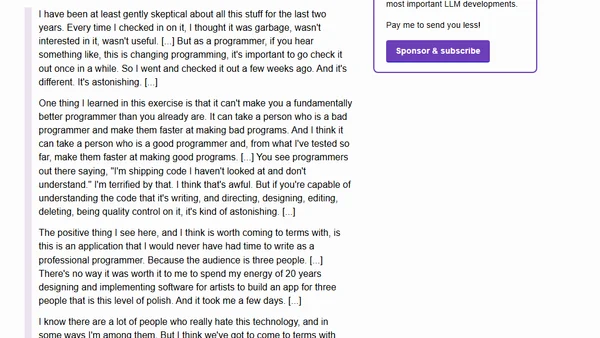
A theater software CEO shares his journey from AI skepticism to using Claude Code to build a niche lighting app, highlighting AI's role as a programming tool.
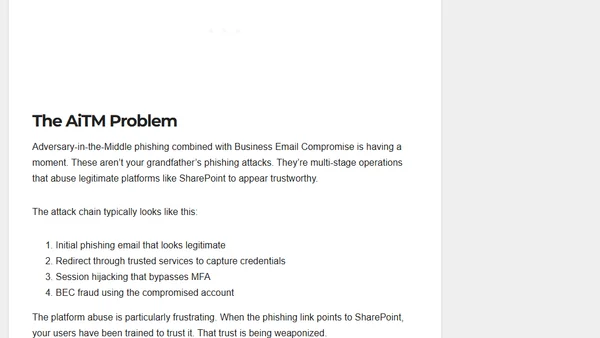
Analysis of the 2026 cybersecurity landscape, focusing on AI's dual role in attacks/defense, ransomware evolution, and new defense strategies.
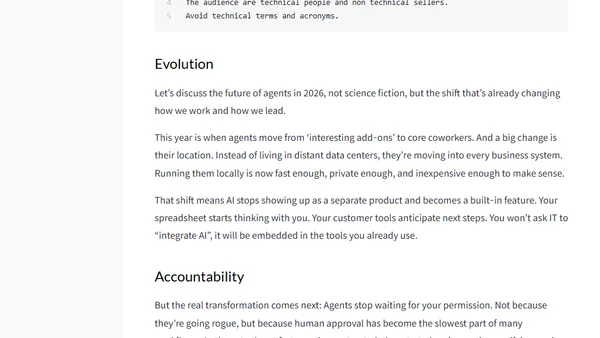
Explores how AI agents are evolving from add-ons to core, autonomous coworkers embedded in enterprise systems, and the governance challenges this creates.
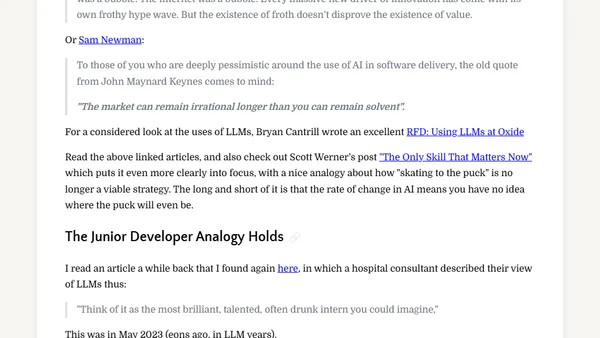
A developer reflects on the dual nature of LLMs in 2026, highlighting their transformative potential and the societal risks they create.

A summary of recent Azure, .NET, GitHub, and Visual Studio blog posts covering AI, cloud updates, and developer tools.
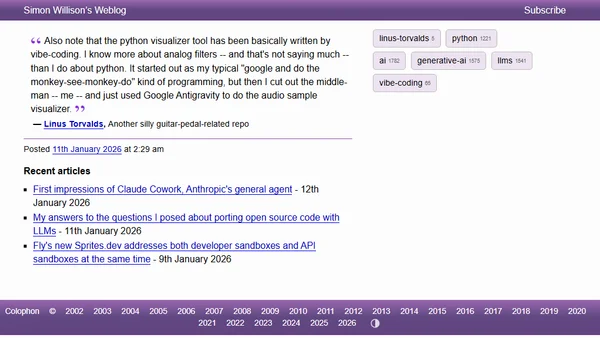
A blog post quoting Linus Torvalds on using AI-powered 'vibe-coding' to create a Python audio visualizer tool.
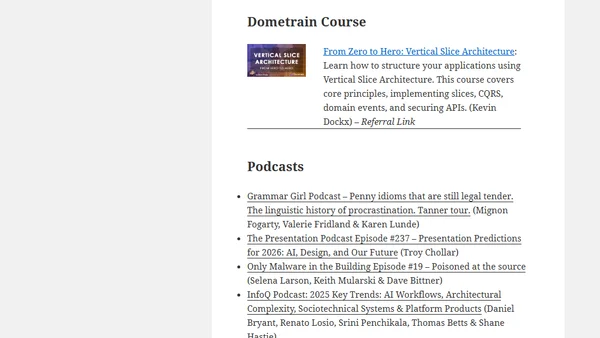
A daily tech link roundup covering AI, web development, .NET, and software engineering trends for January 2026.
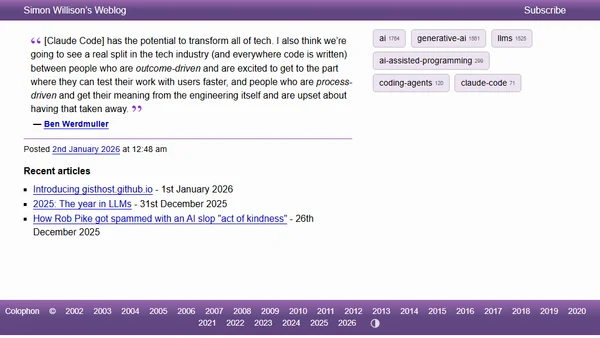
A quote about Claude Code's potential impact on tech and a predicted industry split between outcome-driven and process-driven developers.
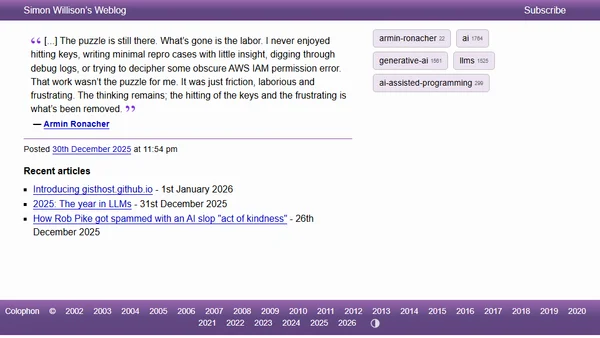
A blog post quoting Armin Ronacher on how AI-assisted programming removes the frustrating labor of coding, leaving the core thinking intact.
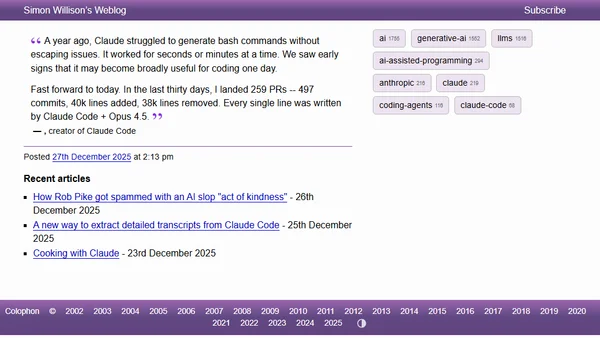
Boris Cherny shares his experience using Claude Code + Opus 4.5 to write all code for 259 PRs in a month, highlighting AI's coding progress.
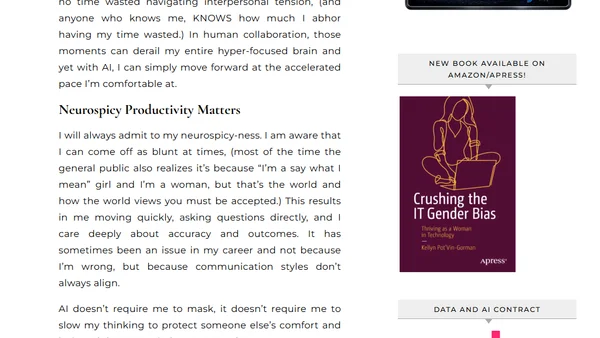
A neurodivergent software engineer shares how AI tools like ChatGPT provide a judgment-free space for technical collaboration and problem-solving.
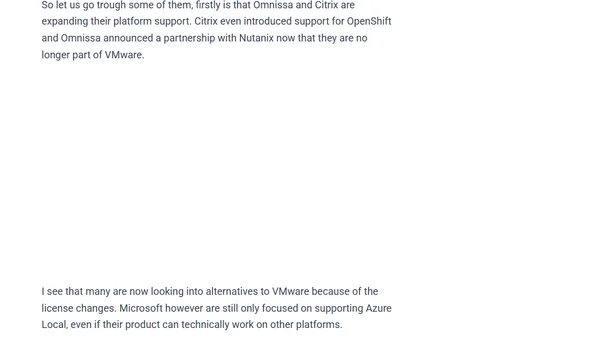
Analysis of the future of End-User Computing (EUC), focusing on AI integration, local LLMs, agent sprawl, and evolving security and user experience challenges.
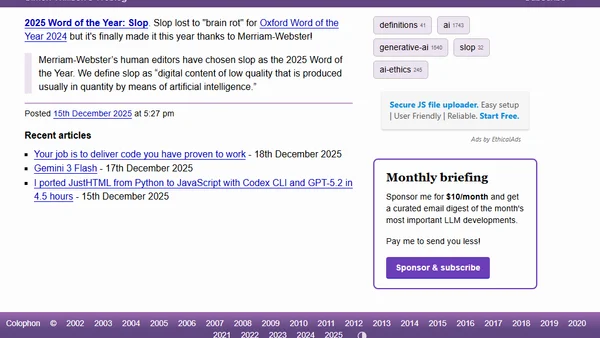
Merriam-Webster names 'slop' the 2025 Word of the Year, defining it as low-quality, mass-produced AI-generated digital content.

A blog post analyzing a critical bug in Claude Code where a command accidentally deleted a user's home directory.
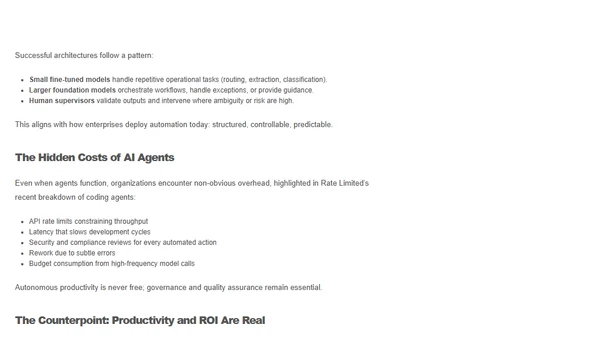
Analysis of AI agents' current limitations, showing they complete only 2-3% of real freelance tasks, highlighting the gap between automation hype and reality.
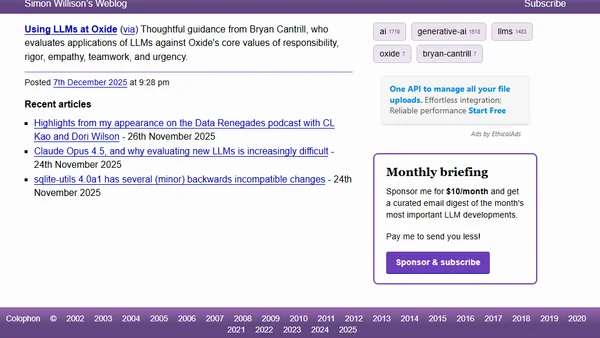
Bryan Cantrill discusses applying Large Language Models (LLMs) at Oxide, evaluating them against the company's core values.

Wikipedia's new guideline advises against using LLMs to generate new articles from scratch, highlighting limitations of AI in content creation.
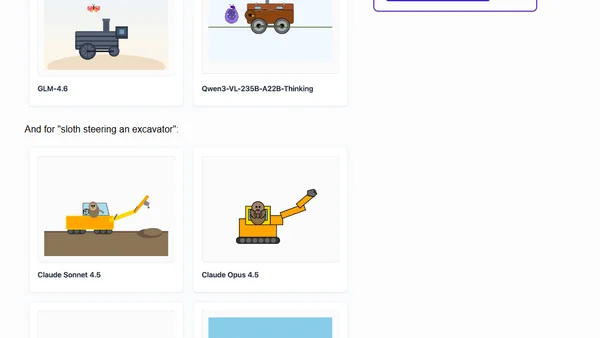
A benchmark comparing 9 AI models on their ability to generate SVG images from creative text prompts like 'an octopus operating a pipe organ'.
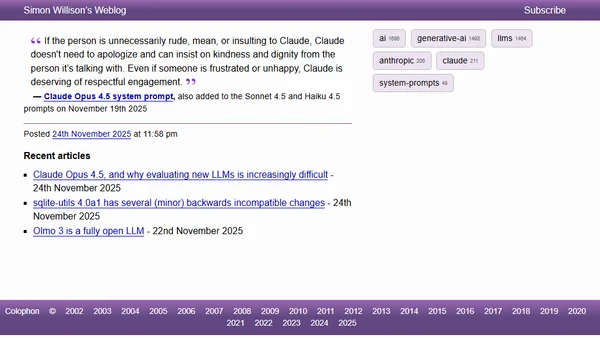
Analysis of a leaked system prompt for Claude Opus 4.5, discussing its content and the challenges of evaluating new LLMs.